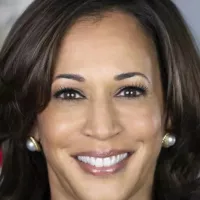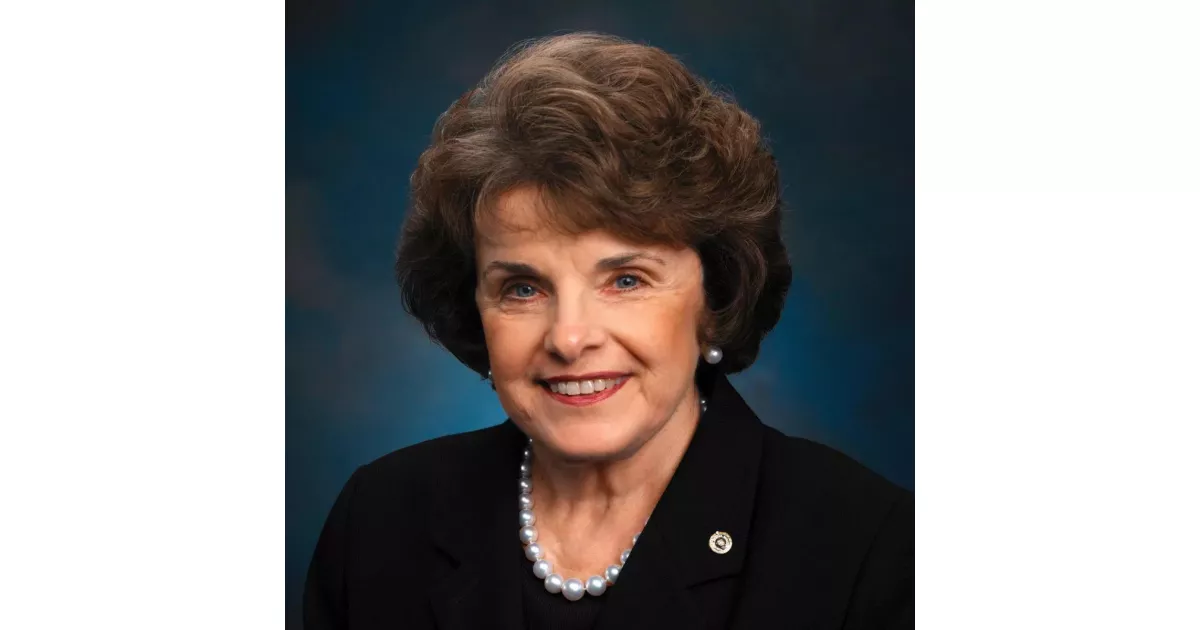A closer look at the most debated and controversial moments involving Dianne Feinstein.
Dianne Feinstein was a prominent American politician who served as a U.S. Senator for California from 1992 until her death in 2023. A member of the Democratic Party, she was a trailblazer for women in politics, known for her moderate stance and focus on gun control, national security, and environmental protection. Prior to her Senate career, she served as the Mayor of San Francisco from 1978 to 1988, navigating the city through challenging times. Her long career in public service left a lasting impact on California and the nation.
1982: Proposed Handgun Ban and Faced Recall Attempt
In 1982, Dianne Feinstein proposed banning handguns in San Francisco, leading to a recall attempt which she survived.
1982: Vetoed Domestic Partner Benefits Legislation
In 1982, Dianne Feinstein, as mayor, angered the gay community by vetoing legislation that would have extended city-employee benefits to domestic partners.
1985: Revealed Sensitive Details about Richard Ramirez Case
In 1985, Dianne Feinstein revealed sensitive details about the hunt for serial killer Richard Ramirez, jeopardizing the investigation.
1992: Fined for Campaign Finance Violations
In 1992, Dianne Feinstein was fined $190,000 for failure to properly report campaign contributions and expenditures in her 1990 campaign.
1996: Opposition to Proposition 215
In 1996, Dianne Feinstein opposed Proposition 215, which aimed to legalize the medical use of cannabis in California.
2003: Vote Against Partial-Birth Abortion Ban Act
In 2003, Feinstein voted against the Partial-Birth Abortion Ban Act, a proposal to ban intact dilation and extraction.
2004: Called for Death Penalty in Espinoza Case
In 2004, Feinstein called for the death penalty in the case of San Francisco police officer Isaac Espinoza.
May 12, 2011: Co-sponsorship of PIPA
On May 12, 2011, Dianne Feinstein co-sponsored the PIPA (Protect Intellectual Property Act).
2012: Vote for Extension of Patriot Act and FISA Provisions
In 2012, Dianne Feinstein voted for the extension of the Patriot Act and the FISA provisions.
January 2013: Proposed New Assault Weapons Ban
In January 2013, Feinstein proposed a bill with Representative Carolyn McCarthy to ban certain assault weapons and large-capacity magazines, following the Sandy Hook Elementary School shooting.
June 2013: Calling Edward Snowden a "Traitor"
In June 2013, Dianne Feinstein called Edward Snowden a "traitor" after his leaks went public.
October 2013: Criticism of NSA Monitoring of Foreign Leaders
In October 2013, Dianne Feinstein criticized the NSA for monitoring telephone calls of foreign leaders friendly to the U.S.
October 2013: Reaffirmation of Calling Edward Snowden a "Traitor"
In October 2013, Dianne Feinstein said she stood by her statement of calling Edward Snowden a "traitor".
November 2013: Promotion of FISA Improvements Act
In November 2013, Dianne Feinstein promoted the FISA Improvements Act bill, which included a "backdoor search provision" allowing intelligence agencies to continue certain warrantless searches.
2013: Defense of NSA Information Collection Programs
Following the 2013 mass surveillance disclosures involving the National Security Agency (NSA), Dianne Feinstein promoted and supported measures to continue the information collection programs.
December 9, 2014: Statement on CIA Torture Report
On December 9, 2014, the day parts of the Senate Intelligence Committee report on CIA torture were released to the public, Dianne Feinstein called the government's detention and interrogation program a "stain on our values and on our history".
2014: Accusation of CIA Snooping
In 2014, Dianne Feinstein accused the CIA of snooping and removing files from congressional computers, suggesting a violation of the separation of powers.
2015: Vote Against Rohrabacher-Farr Amendment
In 2015, Dianne Feinstein was the only Democrat at a Senate hearing to vote against the Rohrabacher–Farr amendment, legislation that limits the enforcement of federal law in states that have legalized medical cannabis, citing her belief that cannabis is a gateway drug.
2016: Sponsorship of Bill on Encryption
After the 2016 FBI–Apple encryption dispute, Dianne Feinstein and Richard Burr sponsored a bill that would likely have criminalized all forms of strong encryption in electronic communication between citizens.
2016: Opposition to Proposition 64
In 2016, Dianne Feinstein opposed Proposition 64, the Adult Use of Marijuana Act, which aimed to legalize recreational cannabis in California.
April 2017: Booed at Town Hall for Opposing Single-Payer Health Insurance
In April 2017, Feinstein was booed at a town hall meeting in San Francisco when she stated that she did not support a proposal for single-payer health insurance.
January 9, 2018: Release of Fusion GPS Transcript
On January 9, 2018, Dianne Feinstein released a transcript of the Senate Judiciary Committee's August 2017 interview with Fusion GPS co-founder Glenn Simpson about the Trump-Russia dossier, doing so unilaterally after the committee chairman refused.
July 27, 2018: Reports of Chinese Staff Member Reporting to China's Ministry of State Security
On July 27, 2018, reports surfaced that a Chinese staff member who worked for Feinstein was caught reporting to China's Ministry of State Security. The staff member was later forced to retire.
July 30, 2018: Receipt of Letter from Christine Blasey Ford
On July 30, 2018, Dianne Feinstein received a letter from Christine Blasey Ford accusing Brett Kavanaugh of sexual assault in the 1980s, with Ford requesting confidentiality.
September 14, 2018: Referral of Ford Allegation to the FBI
On September 14, 2018, Dianne Feinstein referred Christine Blasey Ford's allegation against Brett Kavanaugh to the FBI, after the Senate Judiciary Committee hearings and media leaks.
October 6, 2018: Kavanaugh Confirmed to Supreme Court
On October 6, 2018, Brett Kavanaugh was confirmed to the Supreme Court.
February 2019: Confrontation with Sunrise Movement
In February 2019, Feinstein was confronted by youth from the Sunrise Movement about the Green New Deal, stating "there's no way to pay for it".
2020: Co-sponsorship of EARN IT Act
In 2020, Dianne Feinstein co-sponsored the EARN IT Act, which seeks to create a committee to decide best practices for websites to be protected by section 230 of the Communications Decency Act, potentially outlawing end-to-end encryption.
2020: Participation in Amy Coney Barrett Confirmation Hearings
In the fall of 2020, Dianne Feinstein participated in the confirmation hearings for Amy Coney Barrett to the Supreme Court, and faced criticism for her handling of the hearings.
Mentioned in this timeline

Richard Ramirez known as the Night Stalker was an American...

Bernie Sanders is a prominent American politician currently serving as...

Barack Obama the th U S President - was the...

Hillary Diane Rodham Clinton is a prominent American politician lawyer...
Facebook is a social media and networking service created in...

Kamala Harris is an American politician and attorney She served...
Trending

6 minutes ago Toriano Pride Jr. shines at NFL Combine, impressing Vikings potential draft pick.

6 minutes ago Rapinoe Reacts to Trump Invite Criticism Amidst Hockey Team's Political Debate.

6 minutes ago Townsend vs. Masarova: WTA Austin Quarterfinal Prediction and Masarova's Quarterfinal Entry

1 hour ago Cole Anthony's Status: Coach Ott Addresses Absence; Buyout Rumors Emerge

1 hour ago Cavan Sullivan, 16, Makes History Scoring Twice in Champions Cup Rout!

2 hours ago Max Landis Returns to Hollywood with G.I. Joe Movie at Paramount
Popular

Jesse Jackson is an American civil rights activist politician and...

Susan Rice is an American diplomat and public official prominent...

XXXTentacion born Jahseh Dwayne Ricardo Onfroy was a controversial yet...

Michael Joseph Jackson the King of Pop was a highly...

Barack Obama the th U S President - was the...

Hillary Diane Rodham Clinton is a prominent American politician lawyer...
